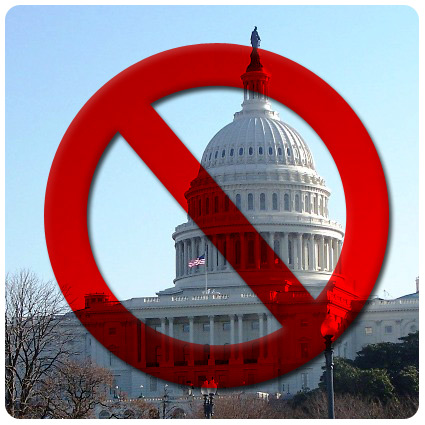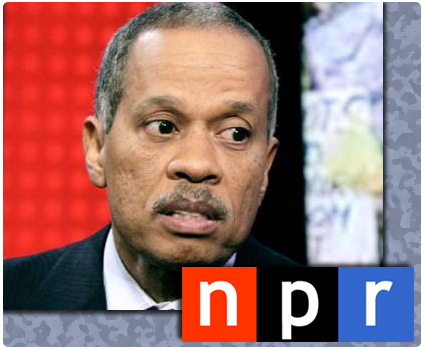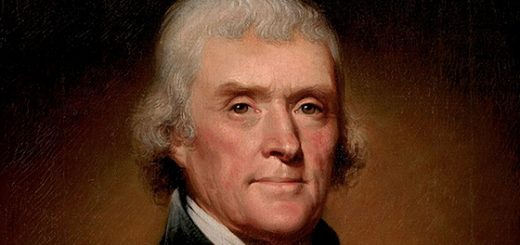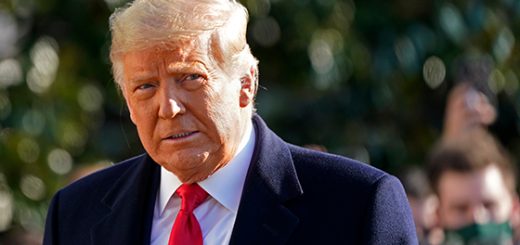The government needs to get out, not bailout.
Click here to listen to the broadcast of You Tell Me on Newstalk 600 KTBB, Friday, December 19, 2008.
With all of the news of the past weeks if I could I would wave a wand and the federal government would take a giant step backward. I mean a giant step.
The two biggest stories of 2008 are the home mortgage meltdown and the auto industry collapse. The federal government is neck deep in both. And look at the mess that has been made.
And I’m not talking about recent attempts by the fed to clean up the mess. I’m talking about the fed’s role in making the mess in the first place.
Why is the government involved in home mortgages? If I want to buy a house, I have to be able to pay for it in cash or I have to borrow the money. To borrow the money, I have to have lived my life such that a banker will have the confidence to make me a loan.
Bankers don’t make money until they loan money so they have an incentive to loan money to as many qualified borrowers as they can. Qualified means capable of and willing to repay the loan.
Not everyone is qualified. And those that aren’t qualified are unable to buy houses. To the extent that unqualified people want to qualify, they have an incentive to become educated and employable and responsible.
But not if the government steps in and mandates that banks loan money to people that otherwise can’t qualify.
But that’s exactly what happened. In 1977, President Jimmy Carter signed the Community Reinvestment Act, a law that forced banks to loan to customers they might otherwise have denied. In 1995, Bill Clinton by executive order put even more teeth in the Community Reinvestment Act. The resulting mortgage paper had to go somewhere and that somewhere wound up being Fannie Mae and Freddie Mac. These two government sponsored behemoths created a market for so-called sub-prime mortgages that served to take the paper off the books of the originating banks, making it possible for them to make even more loans.
When the loans began going bad, as they were destined to do, it put enormous strain on the banking system and we now find ourselves in a severe credit squeeze.
So get out of housing, Uncle Sam. Let willing lenders and qualified borrowers come together in a free marketplace.
The same for the auto business.
Let’s not talk about the proposed $14 billion bridge loan to the auto companies that failed in the Senate last week. The fact that such a proposal is even necessary lies in large part at the government’s feet. It’s about Washington politicians and bureaucrats trying to tell car makers what kind of cars to build and how to compensate those that build them.
The Detroit automakers have signed ruinously expensive labor agreements with the United Auto Workers union because they know that the UAW has enormous clout with congressional Democrats and that if they, the automakers, stood up to the union, they would stand alone. The automakers need to bust the UAW in order to compete with Toyota and Honda and others who have U.S. assembly plants in which the labor costs are much lower.
But if the automakers try to break the UAW, they will invite the wrath of Democrats in Michigan and in the U.S. Congress. There is a whole raft of law already on the books heavily tilted in favor of the unions and more would likely follow if the car makers stood up to the UAW.
Also with respect to car makers is Corporate Average Fuel Economy or CAFE. This law was passed in 1975 in response to the Arab Oil Embargo. The intention of the law was to force manufacturers to build cars that meet minimum gas mileage standards. The actual result is to force automakers to build cars that consumers don’t want and upon which car makers lose money.
Auto executive Bob Lutz compared CAFE to trying to combat obesity by making clothing manufacturers only make small clothes.
Again, the government has no business here. Consumers can decide for themselves via the price signals of a free economy how much a car will cost to operate and make their purchases accordingly. The government should let car makers build the cars that customers are willing to buy.
The economy is in a very painful period right now. I think the Congress should drop the tax rate or at least extend the Bush tax cuts. I think they should promise to stay out of the inevitable fight between the automakers and the unions and I think they should be looking for ways to reduce the role of the federal government, not expand it.
There is no problem that a politician cannot make worse.









Paul:
First, I want to commend you on your “You Tell Me” pieces. They are precise and frankly spot on 100% of the time. You have a great gift, and I love the commentary you give. I posted the following message on my web site yesterday. I thought you might appreciate it. I would be most grateful if you checked it out http://www.thewrightsidusa.com. If you have the chance to listen to one of my archived shows I would be grateful, too with any feedback you might have good or bad. I’m local Tyler business owner who pretends to be a radio commentator on Friday’s at 10a.m.CST on TogiNet.com. Thanks Paul.–Jason Wright
Who’s Da Man? Well, I suppose that would be one Mr. Barack Hussein Obama. First, I would like to say how wonderful it is to see that the greatest nation on the planet once again out-did itself. For all intents and purposes we have elected if not the first African-American President certainly the closest thing we have ever had. Now a black man is da man. How is this possible? It’s because this is America where finally there can be no doubt that the American Dream is for all.
Today as I watched a portion of the inaugural ceremony I was reminded of something which struck me in Beijing last year when I was at the Olympics. I had the good fortune of getting to watch a couple of men’s basketball games. Unfortunately, I did not get to see our guys, but nevertheless I couldn’t help but notice the “whiteness” of nearly all the players on all the other teams. Then I started to notice something else. Most teams from most every other nation in any given sport were collectively pale in color with the exception of a few. This was particularly the case of the largest and most industrialized nations represented save for one nation: The USA.
It seems for years and years when race is discussed in America our country seems to be shrouded in a blush of embarrassment. It seems we get little credit for what has happened in this country as we have evolved into a world leader. While I fully admit we have clouds over us in this country from past ills. It speaks volumes that so many whites have faught, rallied and supported the presidency of Barack Obama. Think for a moment. What other nation would Barack Obama have a real opportunity to hold the highest office in the land? Would it be Germany? Would it be Great Britain? Would it be France? Would it be Bono’s Ireland? Which nation is home to the most black millionaire businessmen and women? Which nation has the most black professional educators? Which nation has a nuclear war head and a black President to decide whether or not to use it? That would be the USA.
The fact is only in America are successful black people more than the exception to the rule. Here the highest paid entertainers are black. The most prominent of all athletes are black. CEO’s, professors, clergymen, Generals, Senators, Congressman and now the President of the United States are black. Blacks in America are able to go to the most prestigious schools and eat in the finest restaurants.
My point is this. It’s not only great that America has come so far. What is truly amazing is that America is the ONLY nation that has come this far. America is the only “white European” nation where blacks are able to dream of and pursue any and every goal they might have. I’m really glad Barack Obama has taken advantage of the “American Dream.” I’m really glad his wife and our First Lady is finally proud of our country. I hope that in the midst of Obama mania we don’t heap so much adoration on Mr. Obama that we forget that it is the greatness of America that allowed Mr. Obama to reach his full potential.
Enough of the apologetic attitude America. Be proud. We have something to be proud of in our new President beyond his personal accomplishments. We can be equally proud that it was, Americans white, black, Latino, Italian and the list goes on who actually elected this man. I certainly didn’t vote for him because he has a much different view of America than I do. That’s ok. Even with our political differences I can still be proud that my country is the one where anyone from any race can reach the highest levels of opportunity. With all that said, Mr. Obama..You Da Man!
God bless you America.